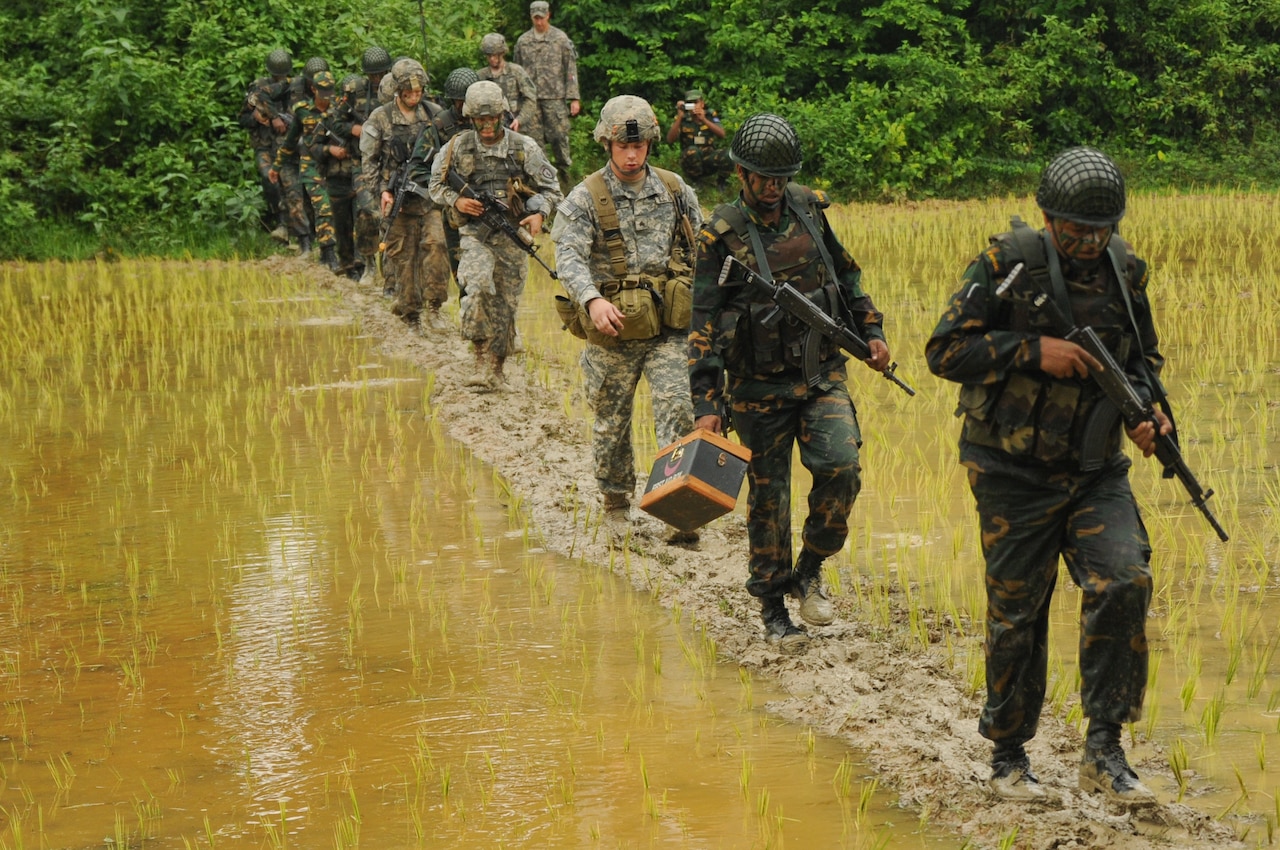The environmental factors affect war and security has long been known, but a new Defense Department group seeks to increase awareness of these factors in making policy and responding to crises.
RECESS — Resource Competition, Environmental Security and Stability — is the brainchild of Dr. Annalise Blum, a policy fellow of the American Association for the Advancement of Science, who works in the Pentagon's Office of Peacekeeping and Stability Operations. The idea underlying the program is to build a community of interest that examines environmental factors, and what that means to the threats moving forward and in the U.S. response.

The increasing desertification in Africa is a case in point. As the Sahara grows south, people can become displaced and desperate. Groups such as the terrorist group Boko Haram swoop in and convince these desperate people to join their extremist organizations, not necessarily because they believe the ideology, but because it represents survival, Blum said.
Blum called the Lake Chad region the "poster child" for environmental instability where periods of drought and competition for water in the West African area play right into extremists' hands. Blum, whose doctorate is in environmental and water resources engineering, notes that water is crucial, but environmental changes take many forms, affecting food supplies and crop growing seasons, and it may affect electricity generation and health.
Changes in environmental conditions mean stronger storms, more floods, more persistent droughts, rising sea levels, greater forest fires and more. In First World areas, governments and organizations can better deal with these effects. In some areas of Africa and Asia — both places where Blum did research — this becomes a problem. In many areas there is no government or the government's ability to deliver capabilities is limited. This generates instability, and possibly war.

RECESS seeks to "inform strategic thinking to prepare more effectively for the risks associated with resource competition and environmental insecurity," Blum said in an interview.
The group is a network of people from DOD organizations, led by the deputy assistant secretary of defense for stability and humanitarian affairs, concerned with environmental threats. "It allows us to share thinking among the various offices and possibly reduce duplication and encourage cooperation," she said. For now, the group is in DOD, but they have had presentations by outside experts, including from the State Department.
RECESS also includes representatives from the intelligence community, and Blum said they are crucial to giving all participants an idea of the threats and instability that nations or regions face. As a whole, the group provides the participants "the opportunity to talk and coordinate the issues or ideas," she said.
The combatant commands also play a large role in this process. U.S. Africa Command is dealing with droughts, floods, natural disasters and some man-made problems, Blum said. The command is also seeing a growth in extremist groups that recruit among the vulnerable and prey on populations. "U.S Africa Command's work with nations in the region to mitigate the effects of some of these [environmental] changes is helping to support stability and prosperity," Blum said.

Historically, the environment has always influenced outcomes. Had Washington known the Battle of Monmouth in 1778 would be fought in temperatures around 100 degrees, he may have had more water available and fewer soldiers would have died from the effects of the heat alone. A sticky, quagmire of a bog at Culloden ensured the Highlanders defeat in 1747. During operations against the Japanese in December 1944, Typhoon Cobra sank three U.S. ships and damaged a score more during World War II. The U.S. Marines at the Battle of Tarawa in 1943 had to walk a mile to shore after officials misread the tide table. The environment and weather can have great impact on how and where the military operates. Being informed and prepared to deal with these challenges helps ensure mission success.
"Environmental change impacts strategic competition," Blum said. "We can see environmental trends and track them. Now we must consider these changes and study the implications. Supporting stability and environmental security presents an opportunity to support the National Defense Strategy objectives, including strengthening alliances and attracting new partners."
Blum is one of about 20 AAAS Fellows in DOD. The program is targeted to scientists and engineers to join a government department or agency and gain experience in policymaking. It also allows them to impart their knowledge and scientific way of thinking to policymakers.






No comments:
Post a Comment